2021 International Day for the Eradication of Poverty
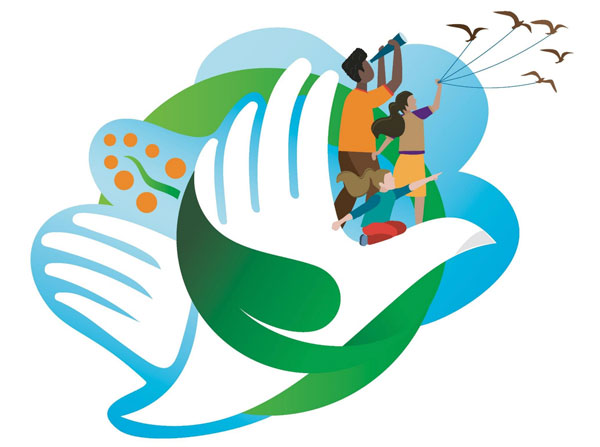
On the International Day for the Eradication of Poverty (IDEP), the United Nations ensures that the knowledge, contributions, and experience of people living in poverty are recognized and celebrated. This year, the theme of IDEP was “Building Forward Together: Ending Persistent Poverty, Respecting all People and our Planet’’ and its commemoration was held on Friday, October 15th on Zoom, gathering a global audience of 400. This was the opportunity to hear from those who are at the forefront of fighting poverty while also facing the Covid-19 pandemic and the effects of climate change. Read the summary of the commemoration below.
This year’s International Day for the Eradication of Poverty’s commemoration began with a welcome from moderator, Dr. Antonia Joy Kategekwa. Dr. Kategekwa is a leading development law and policy specialist who is currently the Strategic Advisor to the Assistant Administrator and Director of UNDP’s Regional Bureau for Africa. She introduced the spirit of the International Day:


Play with YouTube
By clicking on the video you accept that YouTube drop its cookies on your browser.
Dr. Kategekwa asked, “How can we build forward together, to end persistent poverty, respecting all people and our planet?” and handed the mic over to UNDP Administrator, Achim Steiner to deliver opening remarks on this theme.
Mr. Steiner’s remarks emphasized how human choices shaped by values and institutions have given rise to planetary and social imbalances. He addressed the global state of poverty, noting that poverty is rising for the first time in a generation due to the pandemic. Mr. Steiner also highlighted some of the attributes of multidimensional poverty’s face to the world: 1.6 billion informal workers who receive low wages, work in unsafe conditions, and have limited or no social protections; political instability and conflict that increase poverty, famine, and migration; and the ‘GDP of the poor,’ which indicates an economy reliant on depleted and degraded natural resources that is destined to grapple with climate change. Indeed, the experience of poverty intersects with that of most global crises.
A pleasure to deliver opening remarks at @UN #IDEP2021 event organised by @ATD4thWorld.
With extreme poverty rising for the first time in a generation, we must re-double our efforts support communities to #EndPoverty & achieve the #SDGs #BreakTheCycle. pic.twitter.com/aD4lsqSNAR
— Achim Steiner (@ASteiner) October 16, 2021
With this backdrop of the global poverty situation provided, Dr. Kategekwa introduced video messages from people living in persistent poverty whose lives have been deeply affected by environmental degradation and climate change.


Play with YouTube
By clicking on the video you accept that YouTube drop its cookies on your browser.
Barclay Owen works as a garbage collector and lives with his family in the Central African Republic. He was very content to make enough money to move his young family from a dangerous neighborhood overridden by violence to a safer neighborhood along the Ubangi river. But then, climate tragedy struck in the form of extreme flooding, forcing Owen and his family to move back to their old neighborhood and stripping them of nearly all of their belongings. Aside from flooding, the land is also severely deforested, mined, and polluted, human actions that deregulate and upend every part of the local ecosystems. Owen frames his work as a garbage collector as a personal commitment to support not only his family, but also the environment. Like others on the frontlines of poverty and environmental degradation, Owen works very hard, adapts, struggles, resists–does everything to make his children’s future different from his present. Owen’s story ended with a plea to unite for an economy that respects both human beings and the Earth.


Play with YouTube
By clicking on the video you accept that YouTube drop its cookies on your browser.
Community activist Gerry Scardo joined us from the Central Appalachian Mountains to deliver a warning about the region’s “broken seasons” and flooding events. Noting the land’s ceaseless abuse by the mining and fracking industries, Scardo works to educate her community about how these industries contribute to the flooding. In a region facing immense financial challenges, the most vulnerable struggle to keep up with repairs necessitated by the flooding. She concluded her message by emphasizing the region’s need for broader investment in initiatives that mitigate environmental impact and build resilient communities unreliant on the fossil fuel industry. Scardo used her IDEP platform to address the government, saying, “Community and individuals alone cannot overcome the challenges of climate change and a declining economy.”
After watching the messages by Barclay Owen and Gerry Scardo, Lenen Rahaman, founder of MATI NGO in Bangladesh, and Kerstin Stendahl, UNEP Co-Manager of Poverty-Environment Action and Coordinator of the UNEP Ecosystems Division Ecosystems Integration Branch, joined for a dialogue on the global poverty situation and how it is impacted by the pandemic and climate change.
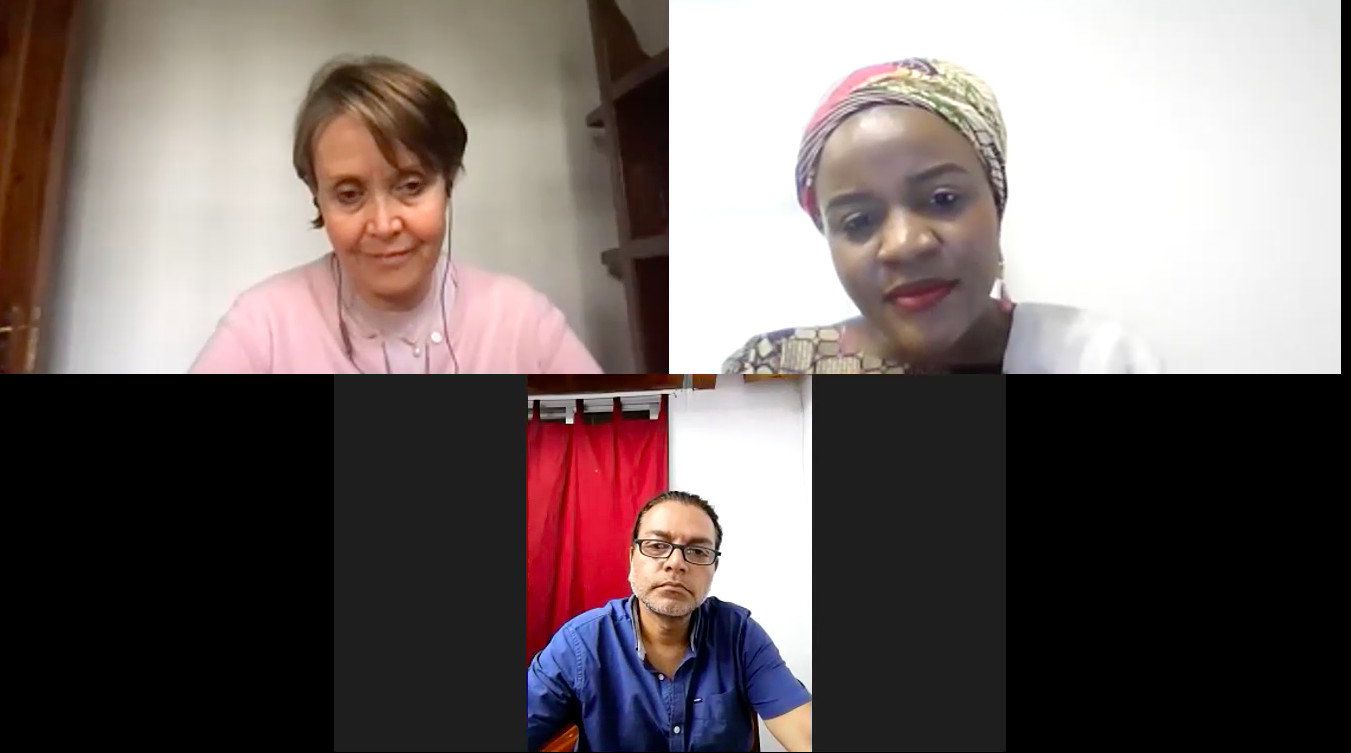
Rahaman spoke from the grassroots perspective and centered the experiences of people on the ground in Bangladesh, in particular children. Echoing the final message Scardo shared in her video, Rahaman lamented the insufficient support people living in poverty receive from government adaptation and mitigation projects. One of the often overlooked effects of this lack of support is the stress and anxiety felt by children in Bangladesh who are experiencing poverty and carrying the burden of being witnesses to the great cataclysms of climate change. In a country where rising sea levels and flooding pose an omnipresent threat to all, Rahaman works with children who express oppressive feelings of uncertainty about their future, feelings that he says affect both body and mind. Rahaman’s method of listening to people living in poverty is one he says needs to be replicated by the government of Bangladesh and the global community alike. Without the participation of people with first-hand experiences of poverty and climate change, efforts to address these issues will fall short.
Stendahl used her time to reflect on how people living in poverty are the population most vulnerable to weather and climate impacts because of their economic reliance on climate sensitive sectors, such as subsistence agriculture, fishing, and tourism, harking back to Mr. Steiner’s words on the ‘GDP of the poor.’ During the discussion, she put a spotlight on the issue of internal migration, of which the changing climate is a leading driver. Stendahl asserted that the solutions to these issues are clear: we must increase the resilience of vulnerable communities by protecting biodiversity and restoring ecosystems. In her work, Stendahl facilitates multilateral cooperation in the global response to climate change and pushes government and industry to prioritize investing in the Sustainable Development Goals and the Paris Agreement.
The second half of the commemoration focused on community-led initiatives to address poverty and climate change. It began with a video message from a vacation home in La Bise, France, where members of the ATD Fourth World Volunteers Corps have organized a space for people living in poverty to disconnect from their daily lives and spend time in nature. It is also used as a place for families in the foster care system to reunite and bond. The ATD Volunteer Corps members consider this special place a laboratory for the society they dream of: peaceful, welcoming, respectful of all people and the planet. It is rarely recognized that people living in poverty deserve respite and time away from work and struggle. Vacationers in the video described their visit to La Bise as the first time they felt close to the Earth and had lived in a space free of prejudice. For some, it was also their first vacation. As one person in the video put it: “It’s not just about cultivating the land. There is also the mind. […] In truth, here, it is to cultivate oneself.”


Play with YouTube
By clicking on the video you accept that YouTube drop its cookies on your browser.
Next, Ana Lucia Santos Da Silva shared her experience as a farmer and women’s activist in rural Northeastern Brazil. In Massaroca, where Da Silva lives, climate change-enforced drought can be an indomitable force, leaving little water to consume, cultivate the land, or raise livestock. Between the oppressive drought and the Covid-19 pandemic, Da Silva informed us that her community struggles to feed itself and economic activity has ground to a near-halt, with many in her community facing unemployment. In her work, Da Silva organizes community members, especially women, and shares knowledge about how to mitigate the damage done by drought. She teaches people how to move from commercial farming to subsistence farming or what kinds of grains and livestock consume less water. Da Silva also presides over a committee of twelve associations working toward change in the region, espousing grassroots pressure to change public policy. They aim to restore their local ecosystem and create better living conditions for women.


Play with YouTube
By clicking on the video you accept that YouTube drop its cookies on your browser.
After hearing about the community initiatives in France and Brazil, Dr. Kategekwa led a discussion between Glendy Rosales, an activist with ATD Fourth World and member of the Trabajar y Aprender Juntos (Working and Learning Together) project in Guatemala, and Olivier Richard, Head of the Development and Climate division at the Permanent Mission of France to the United Nations.
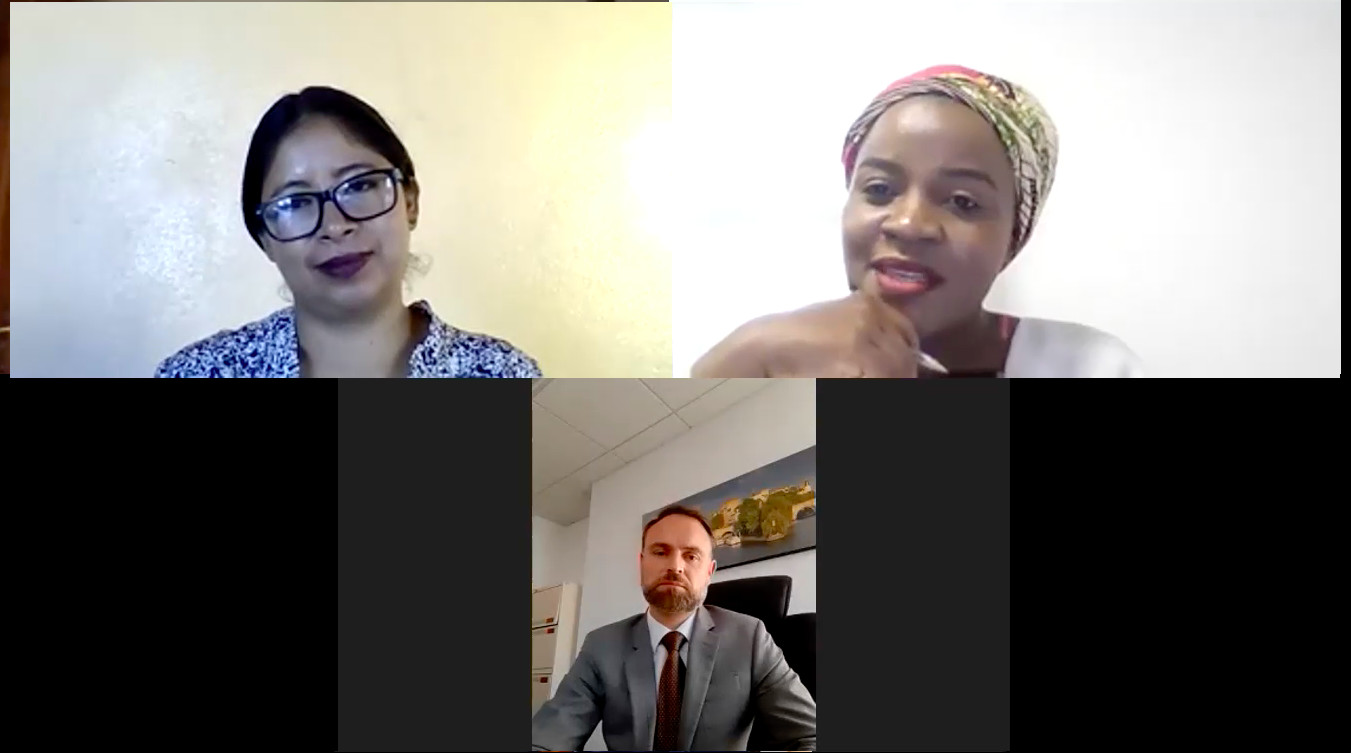
Rosales began by framing her participation in Trabajar y Aprender Juntos (TAJ), or Working and Learning Together, around her background growing up in a neighborhood that is the largest garbage dump in Guatemala City, considered a “red zone” for its high rates of violence. With this initiative, she and other women from such red zones sought to address the employment discrimination and exploitation they face, as well as the pollution in the area. Supported by core values of solidarity, inclusion, and respect, the women in TAJ seek to create empowering work opportunities for their members. This work involves procuring waste from the garbage dump to make crafts that are sold. The profits are divided equally among the artisans, so that even the women who sell less can earn money, thereby creating an economy of solidarity. Like Ana Lucia’s story, the TAJ project is a great example of how women who are economically and socially excluded may act in synergistic support of one another and their environment.
Olivier Richard addressed the audience from the state perspective, delivering a warning about the policy design traps he feels governments and institutions should avoid. The first was a warning about the inefficacy of prioritizing policy aimed at poverty reduction over that of tackling climate change. Instead, Mr. Richard stressed the importance of working on both issues simultaneously with equal urgency, supporting the methodologies espoused by TAJ and Ana Lucia’s organization. He also warned against the tendency to address poverty and climate change in silos, advocating instead for the adoption of an integrated approach. Mr. Richard emphasized that in order to avert a climate crisis, the richest countries and the most privileged people will have to change the most; but ultimately everyone will have to change. He also spoke of the need for policy makers to be in more meaningful contact with the people they serve–to understand their realities, communicate about policy work, and hear their feedback.
Director General of the International Movement ATD Fourth World, Isabelle Perrin, and UN Special Rapporteur on extreme poverty and human rights, Olivier De Schutter, were charged with concluding the commemoration.
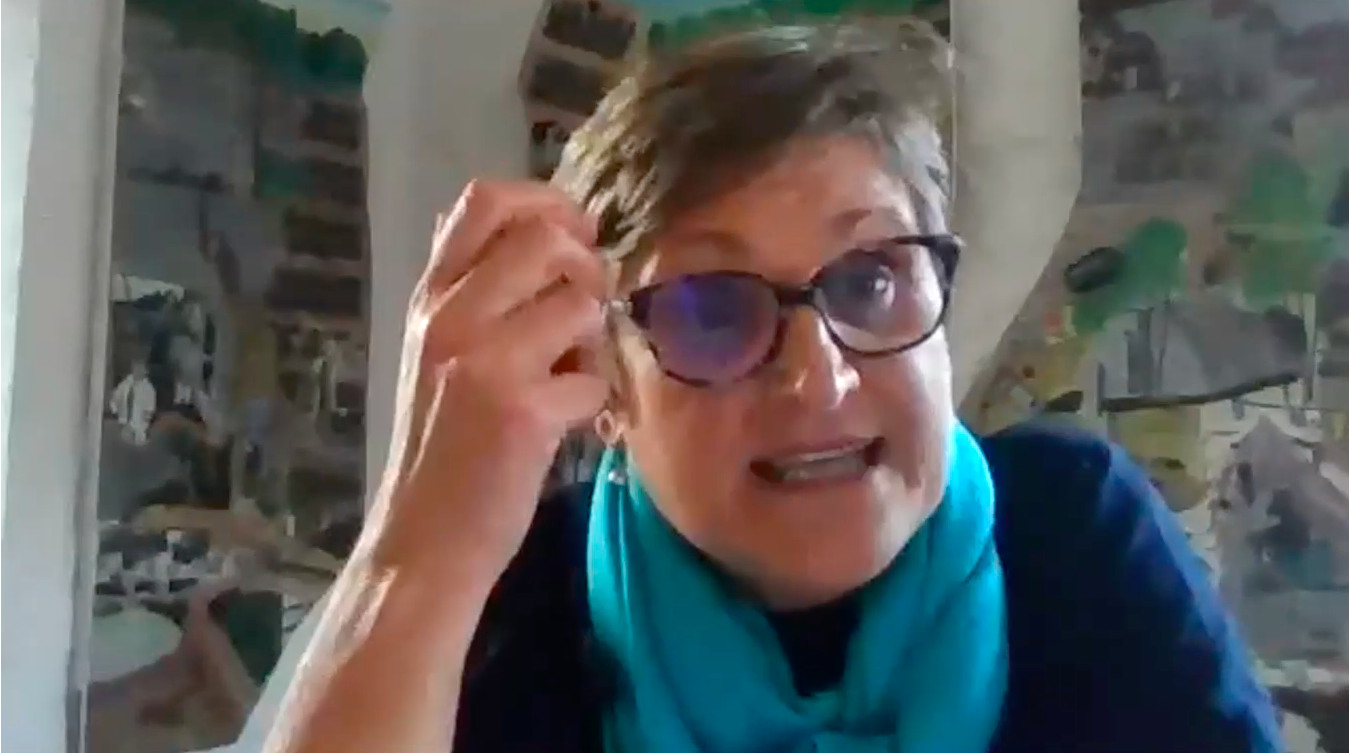
Isabelle Perrin’s concluding remarks focused on how those who are suffering from poverty are not only the victims; they are also agents of change who know how to build a better world. She asked, “When are we going to learn from those who suffer the most? When are we going to build a just world that is really for everybody, including the future generations?” Perrin noted how, in her work, she has met people living in multidimensional poverty who act, resist, take care of their environment and community, and take charge of the things that others do not. Addressing those in the audience who represent development programs around the world, Perrin recommended that their organizations prioritize creating staff positions whose duty it would be to reach out to the most left behind families and involve them in internal decision making processes and policy-making.
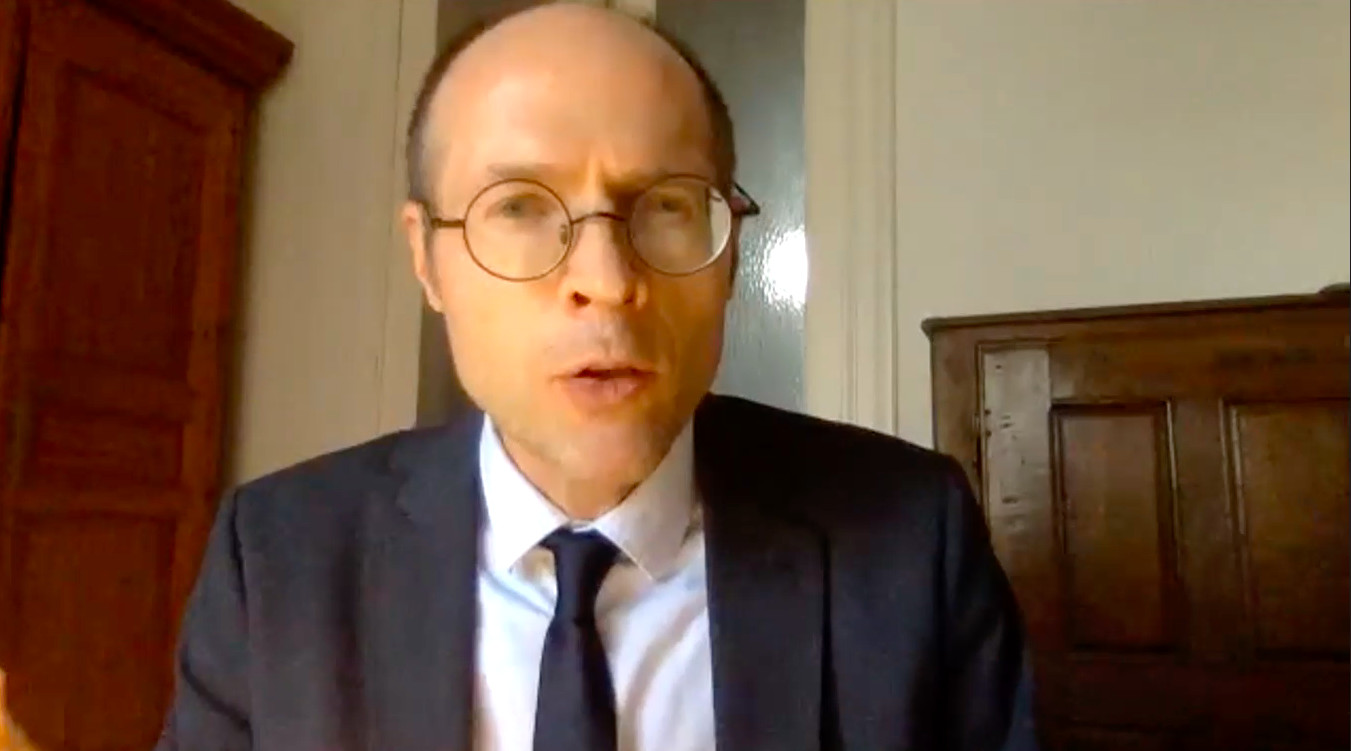
Olivier De Schutter expanded on Perrin’s message by noting that in order to face the great challenges of climate change and environmental degradation today, we must listen to the expertise of people living in poverty. There is no need to choose between investing in social protection or in greening the economy, no need to choose between the green transition and social justice. De Schutter emphasized that the reconstruction agenda should view these subjects jointly and that inequality presents an obstacle to the ecological transformation we urgently need. Illustrating how policy could address both poverty and climate change, De Schutter gave the example of triple dividend measures such as public transportation investments, which can reduce pollution and create jobs accessible to those in poverty.
Dr. Kategekwa then wrapped up the event by summarizing the commemoration’s main ideas. The day’s speakers were in agreement that there should not be a split between poverty and climate action. The two require joint solutions designed by stakeholders from the grassroots to the institutional level. She emphasized the discussion’s focus on the perspectives of people living in poverty, especially women and children, who should be able to participate fully in social development work from policy design to implementation. Dr. Kategekwa reminded the audience of the diverse points raised during the event, such as the need to move away from fossil fuels, the impact of internal migration, and the importance of protecting biodiversity. It is our hope that the day’s rich discussion is a call to action and a call to listen to the voices of people living in poverty, so as to make them full-fledged partners in the eradication of poverty.
“Being part of something that liberates other people is important to me. I have only one struggle: I am unwilling to accept #extremepoverty.”
👉https://t.co/BYuwqx3I1S @ATD4thWorld #EndPoverty #EveryoneIncluded ✨ pic.twitter.com/gwV76YtrNU
— UN DESA DISD (@UNDESASocial) October 17, 2021

